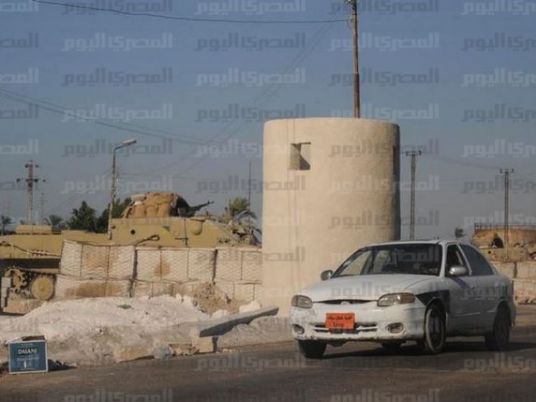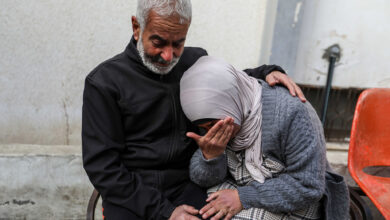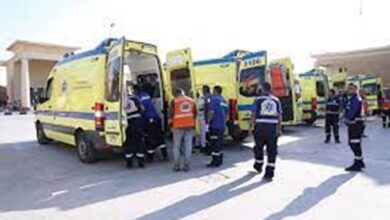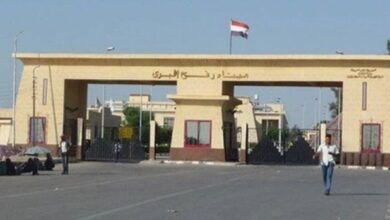
The National Council for Human Rights called on Egyptian authorities to reconsider the number of curfew hours, especially in the quiet areas in North Sinai Governorate, and to coordinate with tribal chiefs for awareness campaigns of the danger of terrorism and means of confronting it.
The council demanded compensation for families of the deceased, farmers, and displaced people as a result of the military confrontations in Sinai and to provide houses and alternative schools for their children close to their new residences.
The report issued by the council monitors the security situation in Sinai during January 22-26.
The council called for providing subsidized goods to evacuated residents of Sheikh Zuweid and Rafah and the need to integrate Sinai people in state institutions by providing job opportunities to them.
The council called for granting Sinai people the right of land ownership, restablishing railways between and public university.
The report called for reconsidering reopening Al-Salam International Bridge to ease the suffering of Sinai people or increase the number of ferries to prevent congestion. It called for clarifying the reasons for the acceptance or rejection of applicants to jobs of Sinai people.
The report suggested the construction of an integrated University in South Sinai as students are forced to travel to other governorates for education, and resettling slum dwellers in South Sinai, and providing drinking water and doctors in all fields at hospitals.
The report included testimonies of displaced inhabitants of Rafah and Sheikh Zuweid.
Selmy Suweilam Graid from the village of al-Toma, Sheikh Zuweid, said he left his residence on 20 Ramadan last, fearing for the lives of his children. He added officials did not help him but activists provided blankets to his family.
The NCHR said the evacuated citizens lived under harsh conditions lacking drinking water, electricity, near schools, jobs and medication.
Mohamed Khater Abu Kuwaiter left Sheikh Zyweid for the safety of his family, leaving his land and his home without any source of livelihood. He said he filed complaints with the official authorities in Sinai but they did not take action. Abu Khuwaiter pointed out he lived in a hut that doesn't take all his family without a solid ceiling or door. He hoped to return to his home and land.
He complained of the high salinity in drinking water and the suffering of children to access school, 3 km from their residence.
Ramadan Suleiman, from Rafah, an employee at the Religious Endowments Ministry, left his job three months ago, without knowing his fate after he failed to get transferred to another directorate, pointing out that his family lives in very difficult circumstances lacking water, electricity and blankets in cold weather.
The mission met with a number of the displaced Sinai residents who testified on condition of anonymity for fear of security prosecutions, and made common complaints, the most important of which were the government's neglect, lack of nearby schools for their children, or blankets in cold weather, and having no subsidized goods and residence. They demanded compensation for the lands and homes they left behind.
The report emphasized that the development of Sinai would contribute to supporting the economy and national security, deepen the affiliation of people of Sinai to Egypt, and improve the national human rights situation.
Edited translation from Al-Masry Al-Youm




